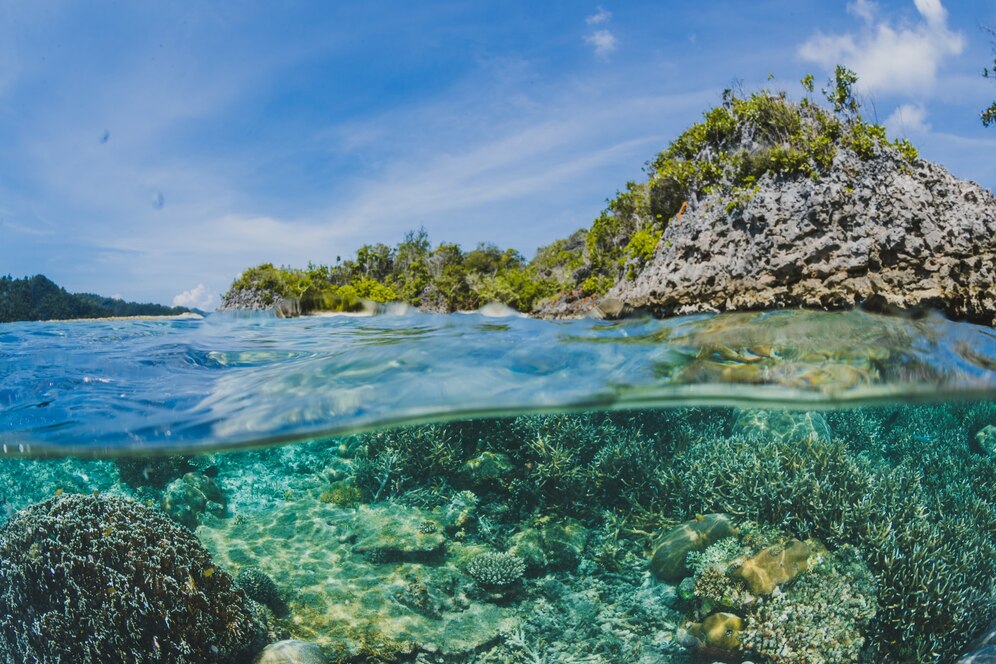
The vast expanse of the ocean, teeming with life and mystery, holds a profound importance to our planet. It regulates our climate, provides essential resources, and inspires awe with its diverse marine species.
However, human activity is taking a toll on the natural resources, world’s oceans, for one. Pollution, overfishing and unsustainable fishing practices, ocean debris, and climate change threaten the delicate balance of the marine environment. But there are simple ways on how to protect the ocean, empowering you to make a difference, no matter where you live.
Reduce Your Reliance on Plastic: Protect Marine Life From a Choking Hazard
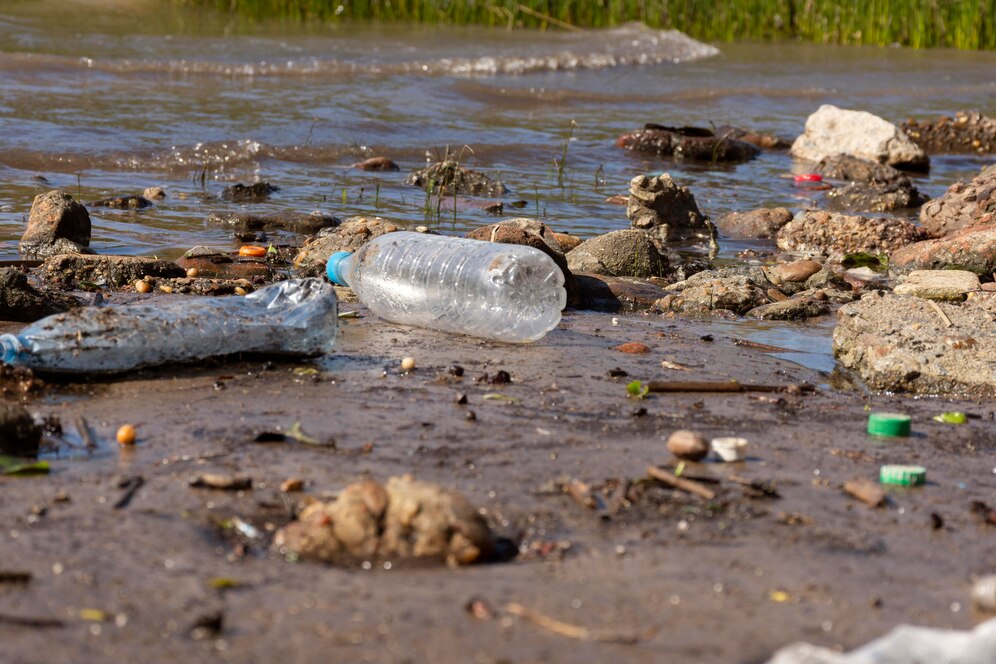
Plastic pollution is a major threat to our oceans, endangering countless marine species. Marine debris, often composed of single-use plastics like plastic bags and straws, entangles and injures marine wildlife. Imagine a majestic sea turtle mistaking a plastic bag for a jellyfish or a playful dolphin getting caught in discarded fishing nets.
Microplastics, or tiny plastic fragments, are ingested by fish and shellfish, entering the food chain and potentially impacting human health. They can also accumulate in the bodies of marine species, causing harm and even death. By reducing your reliance on plastic, you can help protect these magnificent creatures from a choking hazard and ensure a healthier marine environment.
Here’s how you can ditch plastic and protect marine life:
Embrace reusable alternatives
Invest in a reusable water bottle, grocery bag, and coffee mug. This simple switch can significantly reduce the amount of plastic waste entering our oceans.
Refuse plastic straws and utensils
Politely decline plastic straws and plastic utensils when offered at restaurants or cafes. Every straw and utensil refused is one less piece of plastic that could potentially harm marine wildlife.
Look for plastic-free alternatives
Choose products with minimal or recyclable packaging. When shopping, be mindful of the packaging and opt for products with minimal plastic or choose those with recyclable packaging options.
Become a Savvy Seafood Consumer
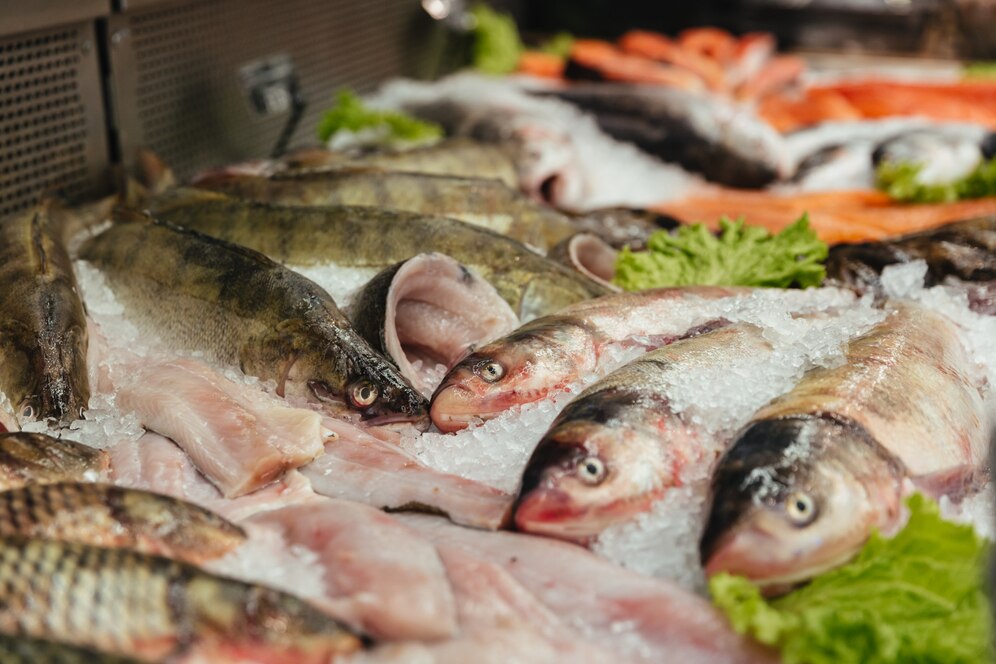
Overfishing disrupts the delicate balance of marine ecosystems, threatening the survival of countless aquatic species. By making informed choices about the seafood we consume, we can help protect the global fish populations and ensure the health of our oceans for generations to come.
Here’s how you can become a savvy seafood consumer and support healthy oceans:
Choose sustainable seafood
Look for certifications like the Marine Stewardship Council (MSC) label, indicating responsible fishing practices that minimize bycatch and ensure the long-term health of fish stocks. By choosing MSC-certified seafood, you’re sending a message that you support sustainable fishing methods that protect marine life and ecosystems.
Variety is key
Opt for a wider variety of fish species, reducing pressure on popular choices. Popular fish like tuna and salmon are often overfished. Explore lesser-known yet delicious options like sardines, mackerel, or mussels. This helps ensure a more balanced approach to fishing and allows overfished populations to recover.
Be mindful of quantity
Enjoy seafood in moderation and avoid overconsumption. Consider incorporating “Meatless Mondays” into your diet or opting for smaller portions of seafood when you do consume it. This reduces the overall demand on fish populations and allows them to replenish naturally.
Save the Ocean: Minimize Your Carbon Footprint
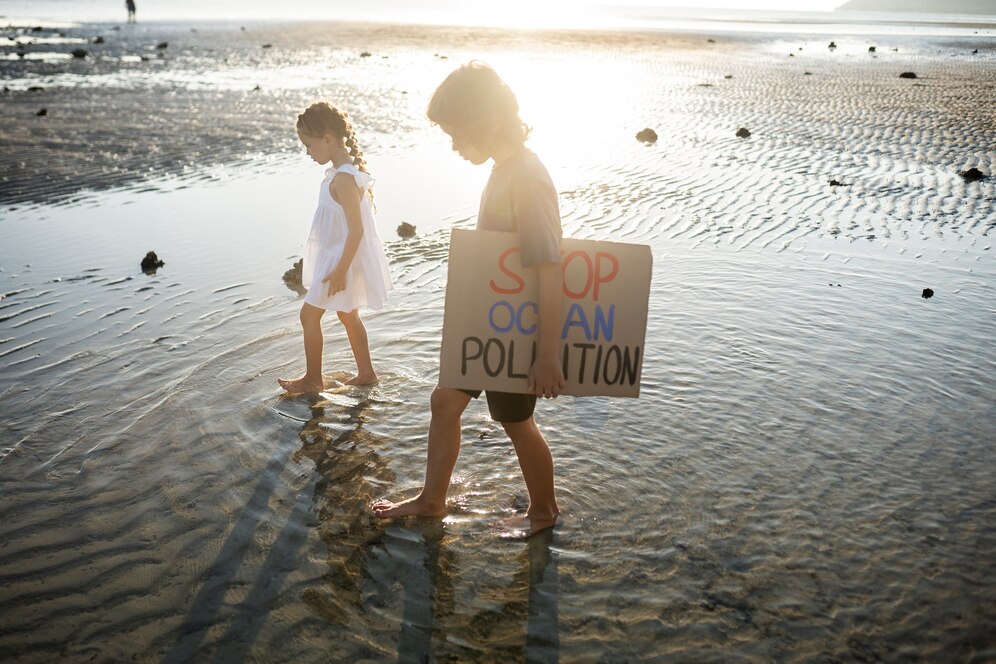
Climate change is a major threat to the ocean, causing rising sea levels, ocean acidification, and coral reef bleaching. These changes disrupt the delicate balance of marine ecosystems, jeopardizing the survival of countless marine species. Reducing your carbon footprint can help mitigate these effects and safeguard the ocean from climate change’s wrath.
Here’s how you can minimize your carbon footprint and protect the ocean:
Embrace energy efficiency
Reduce energy consumption and switch to energy-efficient light bulbs and appliances. Energy-efficient options use less power, resulting in lower greenhouse gas emissions. This helps combat climate change and protects the delicate balance of the marine environment.
Conserve energy
Turn off lights and electronics when not in use. Every kilowatt-hour saved reduces your carbon footprint and helps protect the ocean. Simple actions like turning off lights in unoccupied rooms and unplugging unused electronics can make a significant difference.
Choose sustainable transportation
Opt for walking, cycling, or public transport whenever possible. Cars are a major source of greenhouse gas emissions. By choosing alternative modes of transportation, you can significantly reduce your carbon footprint and help protect the ocean from the harmful effects of climate change.
Protect Ocean Habitats
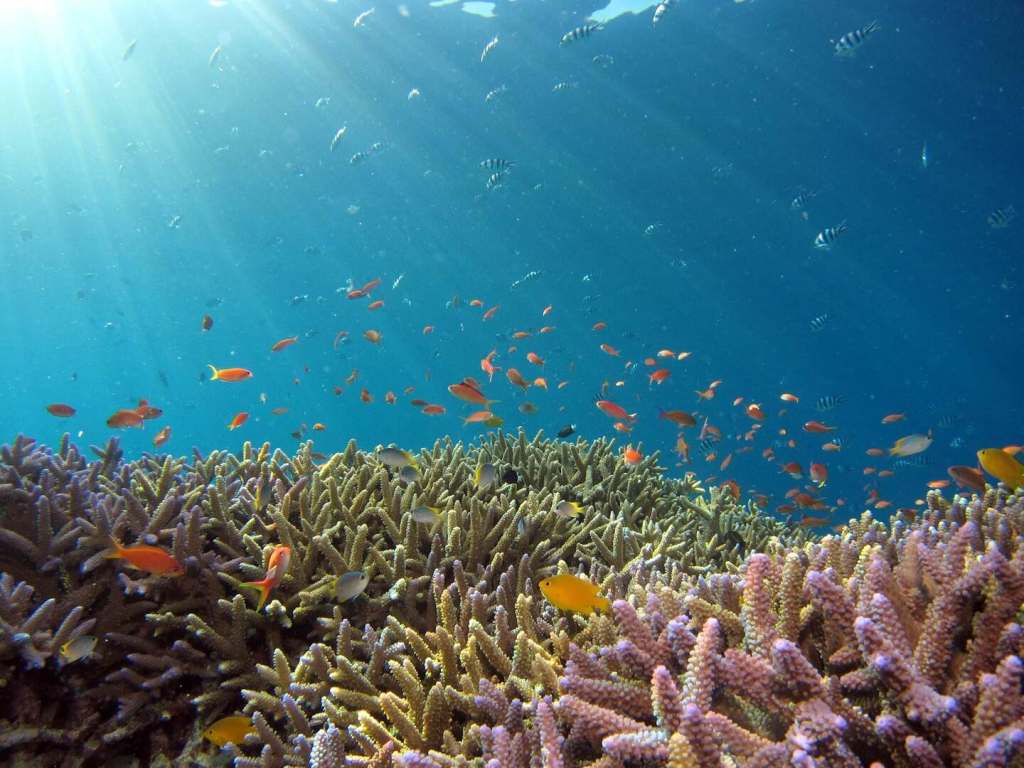
Coastal areas and coral reefs are vital to marine life, acting as nurseries, breeding grounds, and feeding zones for countless marine species. These delicate ecosystems are threatened by pollution, habitat destruction, and climate change. Simple actions you take on land can help protect these vital habitats and ensure the survival of the incredible creatures that call them home.
Here’s how you can become a champion for ocean habitats:
Be a responsible beachgoer
When enjoying the beauty of the coast, dispose of trash properly to avoid harming marine wildlife. Leaving trash behind can pollute the water and injure animals who mistake it for food. Respect wildlife’s space and natural behaviors to avoid disturbing them. Finally, resist the urge to remove natural items like shells or coral. These items play a vital role in the health of the ecosystem.
Support marine conservation projects
Many organizations are dedicated to ocean cleanup, habitat restoration, and marine research. Consider donating to these worthy causes and supporting their efforts to protect our oceans. Regardless of size, your contribution can make a real difference in safeguarding these vital ecosystems for future generations. Support organizations working to save the ocean and the precious life living in them. There are many ways you can help like joining local beach cleanups, following ocean policies, to name a few.
Stay informed about local issues
Get involved in community initiatives to protect local coastlines and marine environments. Learn about the specific challenges facing your local aquatic ecosystems and find ways to get involved. Whether participating in a beach cleanup, advocating for responsible coastal development, or simply spreading awareness, your actions can positively impact the ocean.
Spread Awareness and Encourage Others
Inspiring others to take action is crucial to protecting the ocean. The health of our oceans is a shared responsibility, and by spreading awareness and encouraging others to adopt sustainable practices, we can create a powerful wave of change.
Here’s how you can become an ocean advocate and inspire others to join the movement:
Educate friends and family
Share information about simple ways on how to protect the ocean. Talk to your loved ones about the threats facing our oceans and the positive actions they can take. From reducing plastic use to supporting sustainable seafood choices, even small changes can make a big difference. Sharing informative articles, documentaries, or social media posts can spark conversations and inspire others to get involved.
Lead by example
Adopt eco-friendly habits and encourage others to do the same. Let your actions speak louder than words. By incorporating sustainable practices into your daily life, you can demonstrate the ease and effectiveness of protecting the ocean. Encourage your friends and family to join you in these efforts, creating a positive ripple effect that expands your circle of ocean advocates.
Support sustainable businesses
Patronize companies committed to responsible practices and ocean conservation. The power of consumer choice is immense. You send a powerful message by supporting businesses that prioritize sustainability and ocean-friendly practices.
Look for companies that use recycled materials, source sustainable seafood, or actively support ocean conservation initiatives. Encourage others to do the same, collectively influencing the marketplace towards ocean-friendly practices.
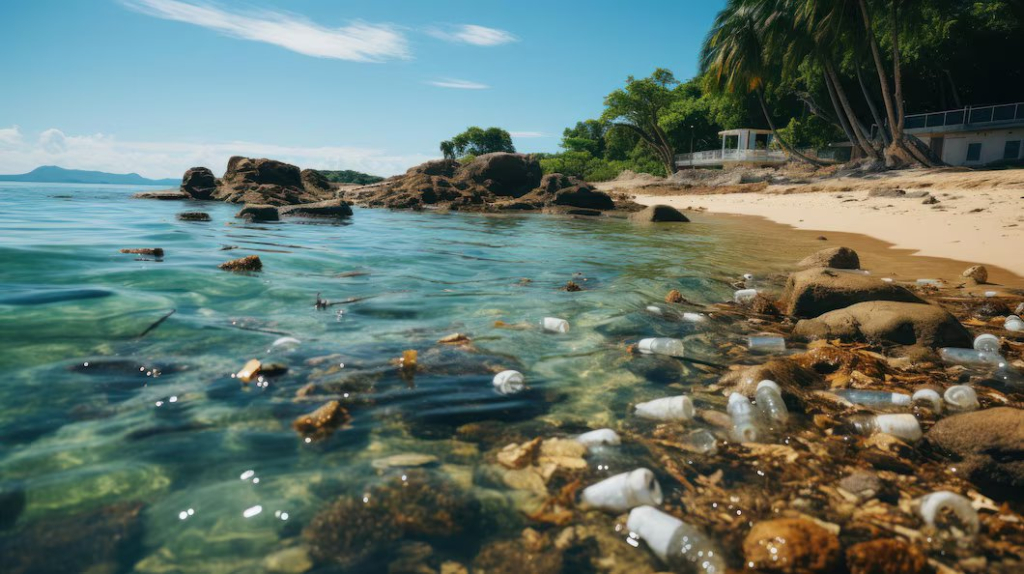
Simple Gestures, Big Impact
Even small changes in your daily life can significantly impact the health of our oceans. You can make a difference by saying no to plastic bags, choosing sustainable seafood, and reducing your energy consumption.
Here are some additional tips you can incorporate:
Avoid products containing harmful ingredients: Be mindful of chemicals in household products that can end up in waterways.
Think twice before buying coral jewelry: Coral reefs are vital ecosystems and should be protected, not exploited for jewelry.
Support local communities: Investing in sustainable fishing practices in coastal communities empowers local people and promotes responsible resource management.
Protecting the ocean requires a collective effort. By embracing these simple ways on how to protect the ocean, we can ensure the health and vibrancy of this vital resource for generations to come. Remember, every drop counts. Together, we can make a wave of change for a healthier ocean and a brighter future for marine life.

Celebrate Life’s Milestones in Camella!
Make unforgettable memories in a Camella home.
Our communities are designed to elevate your living experience.

